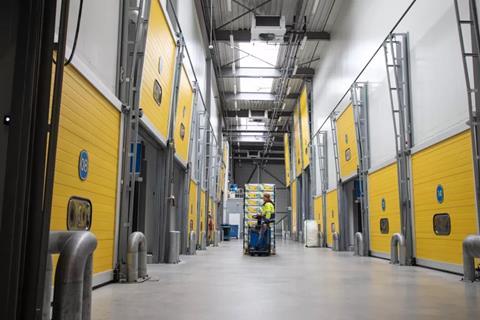Experience Fruit Quality and De Laat have teamed up to create innovative bespoke ripening solutions for avocados and other fruit

Two Dutch companies, QC software specialist Experience Fruit Quality (EFQ) and ripening room builder De Laat, have teamed up to create RipeWise, a groundbreaking solution suite designed to revolutionise fruit ripening.
RipeWise captures extensive data on fruit development and ripening room conditions and uses it to form the foundation for tailored ripening recipes based on the origin of the fruit, its size, the grower, the time of year, and other contextual parameters. It uses artificial intelligence to identify patterns in this data, translating them into actionable alerts for ripeners to support recipe creation, monitoring, and intervention.
De Laat’s bespoke ripening cells allow for precise measurement and control of sensors, enhancing ripening outcomes. Tappers are used to monitor fruit development over time, while AI models track coloration changes, ensuring consistent and predictable ripening results, saving time, fruit, and energy.
“Combining state-of-the-art hardware and software, RipeWise equips ripeners with the tools to achieve optimal ripening results in any situation,” says EFQ’s CEO Marco de Jong. “By capturing and leveraging their own ripening experience, ripeners can improve daily processes, enhancing efficiency in terms of time and energy.”
Ripening has traditionally relied heavily on the expertise of the ripening team using the hardware available to them. But both EFQ and de Laat saw the potential to make the ripening cycle more predictable and the fruit more homogeneous. By merging EFQ’s data and AI capabilities with De Laat’s extensive knowledge of ripening hardware, they created what Adriaan van Beek, CEO De Laat describes as “an ideal blend of human expertise and technological innovation for ripeners”.
“RipeWise monitors every step of the ripening process in detail, providing ripeners with all relevant information to make informed decisions and evaluate outcomes,” he says. “It captures a wealth of contextual data, including harvest dates, transit conditions, and quality checks, to predict the optimal ripening recipe for the desired result. During ripening, we collect data on fruit development and ripening conditions, using historical data to create and refine recipes and monitoring protocols.”
By capturing and connecting data from pre-ripening to post-ripening, ripeners can refine their techniques for each batch of fruit.”
De Laat’s hardware features bespoke temperature control using patented airflow technology, which saves time and energy, enhances flavour, and reduces quality issues. Additionally, state-of-the-art sensors measure and control respiration and ripening conditions, seamlessly integrating with EFQ’s software to provide comprehensive ripening management.
Currently, RipeWise is optimised for bananas, avocados, and mangoes, but it can also be adapted for kiwifruit and stonefruit in the future.
The first version of RipeWise will be available this fall, enabling ripeners to start capturing their experiences and creating tailored recipes.
As more data is gathered, the AI component of RipeWise will grow increasingly powerful, optimising current practices and paving the way for more autonomous ripening strategies. “This will allow ripeners to concentrate their expertise on handling the most challenging batches of fruit,” De Jong says. “The software simplifies data capture and insight generation, allowing ripeners to focus on optimising processes rather than time-consuming inspections and communications.”



